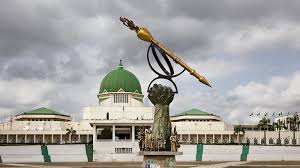ABUJA – March 25, 2025
In a significant legislative move, the House of Representatives has approved 39 constitutional amendment bills in their second reading. These bills propose sweeping reforms across Nigeria’s political, electoral, and institutional structures, addressing issues such as election processes, law enforcement, governance, and judicial oversight.
Key Highlights of the Amendments
1. Simultaneous Elections Across All Tiers of Government
A proposed bill seeks to mandate that elections for the President, State Governors, National Assembly, State Houses of Assembly, and Local Government Councils be conducted on the same day. This reform aims to reduce electoral expenses, minimize voter fatigue, and enhance democratic participation.
2. Establishment of State and Local Government Police
A major shift from centralized policing, this bill proposes the creation of state and local government police forces. The reform is expected to improve community policing, enhance security response times, and align law enforcement with local needs.
3. Creation of a Federal Capital Territory (FCT) House of Assembly
A proposed bill advocates for the establishment of an FCT legislative assembly, granting Abuja similar legislative rights and representation as the 36 states of the federation.
4. Court of Appeal as Final Arbiter in Election Petitions
A bill seeks to streamline electoral dispute resolution by making the Court of Appeal the final authority for petitions related to governorship, National Assembly, and State Assembly elections. This move is intended to reduce the burden on the Supreme Court and expedite electoral justice.
5. Resolution of Election Petitions Before Swearing-In
To enhance the legitimacy of elected officials, a bill proposes that all election petition appeals must be resolved before the swearing-in of elected candidates.
6. Mandatory Resignation for Political Party Executives Seeking Public Office
This bill requires national and state executives of political parties to resign from their positions before contesting for elective offices to prevent conflicts of interest and misuse of party structures.
7. INEC to Conduct All Local Government Elections
A historic bill proposes transferring the responsibility for local government elections from State Electoral Commissions to the Independent National Electoral Commission (INEC). This aims to ensure greater transparency and standardization.
8. Mandatory Resignation Before Party Defection
To enforce political discipline, a bill mandates that lawmakers in the National or State Assembly must resign from their current political party before defecting to another.
9. National Assembly’s Authority to Alter Election Tribunal Timelines
A bill grants the National Assembly the power to adjust electoral dispute timelines based on evolving political and judicial realities.
10. Establishment of a National Local Government Electoral Commission
This bill proposes an independent body to oversee transparent, democratic elections at the local government level, including in the FCT.
11. Reserved Legislative Seats for the Physically Challenged and Special Interest Groups
Two bills advocate for designated legislative seats at federal, state, and local levels for persons with disabilities and special interest groups to promote inclusive governance.
12. Auditor-General Reforms
Several bills propose the following changes to strengthen Nigeria’s auditing institutions:
- Renaming the Auditor-General of the Federation as the Auditor-General of the Federal Government.
- Removing constitutional restrictions on the Auditor-General’s powers.
- Granting financial autonomy to federal and state audit offices.
- Enhancing the independence and efficiency of audit institutions.
13. Creation of a Political Parties Registration and Regulatory Commission
A bill proposes establishing an independent commission to register, monitor, and regulate political parties, ensuring internal democracy and transparency.
14. Expansion of the Supreme Court Bench
To address judicial backlogs and improve access to justice, a bill seeks to increase the number of Supreme Court justices, considering population growth and workload.
Legislative Significance.
These constitutional amendments cover critical areas of Nigeria’s democracy, including elections, law enforcement, governance, judicial reform, and institutional accountability. If successfully passed through the third reading, Senate concurrence, and the approval of two-thirds of state Houses of Assembly, these reforms could mark one of the most transformative updates to Nigeria’s 1999 Constitution.
Political analysts suggest that these amendments address long-standing governance inefficiencies, democratic imbalances, and institutional weaknesses, positioning Nigeria for a more decentralized, transparent, and inclusive future.
